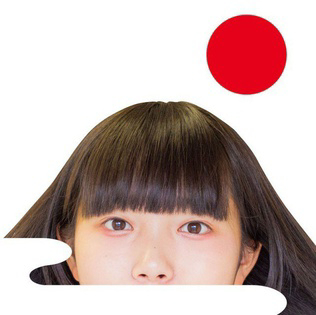Unfortunate Fortunate Turn of Events (In Which Saijiki Surprises Me Beyond Words)
Well, it happened again. In the exact same way Mount Eerie left me speechless after my first listen, I find myself flabbergasted by 3776's Saijiki, released in 2019, the year in which I began my ongoing J-music discovering adventure. I've known about it since probably 2020, and had it downloaded since then. For some unknown reason (comically absurd lazyness) I'd never listened to it... Until today.
This is called Unfortunate Fortunate Turn Of Events because I'm MAD. I'm mad that this is so good that I'll have to listen to it at least 5 more times to even begin to absorb it. I'm mad that I now have a crippling desire to memorize every second of the record, to fully know its in-and-outs and memorise all the lyrics. I'm mad that this is not as good as Long Season but actually MUCH BETTER than Long Season.
In other words, this is the official second best album ever made according to therhinestonehawk dot com.
I'm writing this on the blog instead of RYM in fear of sounding too pretentious, as most people do on that site. This isn't an essay like my others here, it's a regular-ass "I really like this" review, which I could as easily put in there, but I want to immortalize my liking of this album because of how special it is.
THE REVIEW
In my second, therefore first listen, the power of Saijiki's concept became clearer to me. The reason it's so dense and packed is that it is about our relationship with the human-created concept that is time. You won't understand it in your first listen, but you'll like it and know it's good, which will make you want to listen to it again... And again, and again. That's how most people feel about their best times, they want to relive them again, because "you didn't know you were happy back then". Saijiki, much like Tokimeki Memorial (funnily enough, also a comparison made by a guy I follow on RYM) offers you the opportunity to relive your best times. It's a shared gift and an incredibly selfless piece of art.
The sonic aesthetic of Saijiki borrows a lot from 3776's other albums. They have very specific quirks, such as the guitar rhythm and the drum machine timbre that always manages to appear, though it is more clear and transparent probably due to better budget (and the passage of time automatically making things better).
If you've ever read one of my reviews, you know how much I value production over anything else, since it's pretty much music's version of cinematography. It wraps everything nicely together, and that's how you know if the end product is good or not, independent of lyrics or concept. And yes, Saijiki's production is irritatingly perfect. There's nothing to complain or to compliment, it's just perfect.
The lyrics are in japanese, a language I gave up on learning due to it being pitch-based which I find rather difficult to pronounce. So, I can't talk about what they mean, but I don't care about lyrics anyway. What I care about is how they sound, their rhythm and the way they're performed.
I've said many times before that japanese is the perfect language for music because of how words are constructed. Each letter, or sound, is what would be translated as a syllable to us, therefore each letter can be packed into a beat, and the next packed into another, and there it goes making something that sounds tight as all hell. My favourite example of that is the group Perfume which uses the language alongside the tight electronic sound to create incredibly enticing rhythms.
All this to say, I love Saijiki's lyrics. This nature of japanese being tied to the rhythm is used masterfully here, as well as Chiyono's performance which is mind-boggling in every second. Her voice bends at every phrase to give the needed impact. This makes me mad, because talking about it this way is unfair. You don't need me to tell you how good it is. If you do, then you're listening to it wrong.
Another cool thing to note is the album's use of interpolation and references, such as Ode to Joy appearing in January, Claire De Lune appearing in September and Sakura Sakura in March. It's probably also a commentary on the passage of time and how music changes with it. These old and dated pieces being used alongside this dense pop sound is enough said.
THE POINT
Just listen to it already!!! There's no gatekeeping here. It needs to be heard and valued. Saijiki needs to be venerated and consecrated as one of the greatest.
Favourite tracks: January, February, April, September and October... But yeah all the other months are perfect too.
(11/10)
(or, the one rating reserved to the greatest 5 albums ever made)



Comentários
Postar um comentário